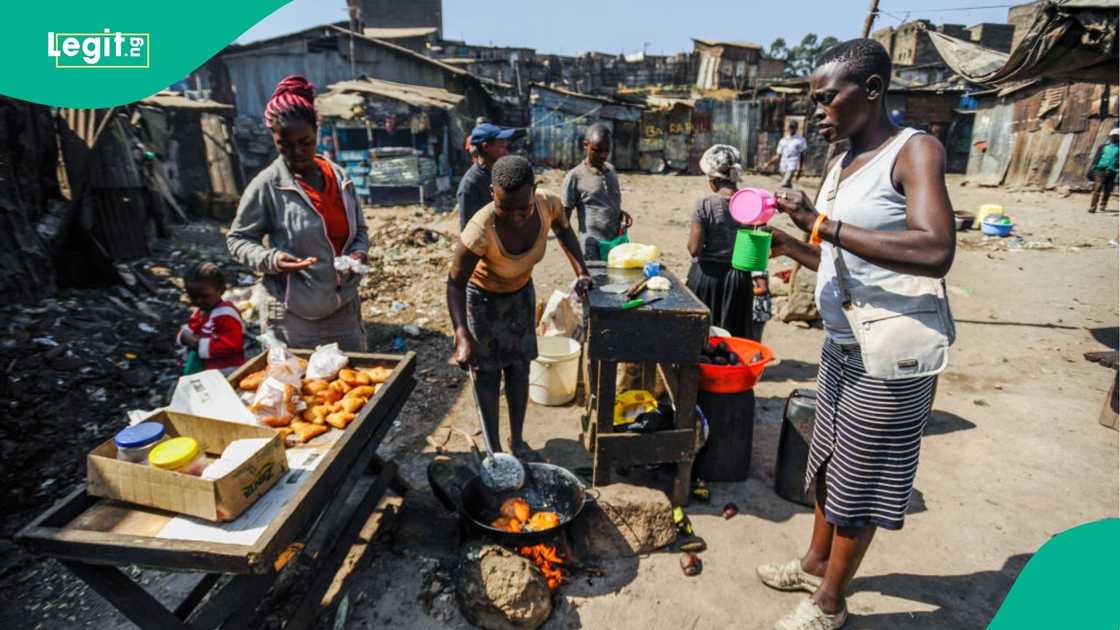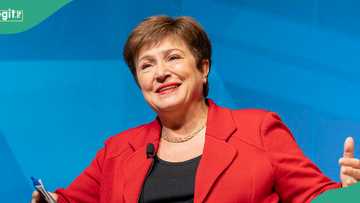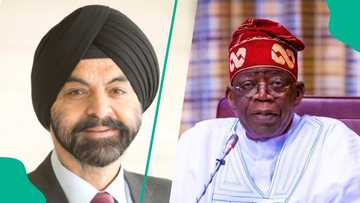More Than 50% of Nigerians Are Multidimensionally Poor – World Bank Report
- World Bank's 2024 Year in Review Report shows that more than half of Nigerians live in multidimensional poverty
- The report says more than half of Nigerians do not cook with clean energy sources but rather use dung, wood or charcoal
- The World Bank adds that given today's harsh reality, it is now impossible to end global poverty by 2030
CHECK OUT: Education is Your Right! Don’t Let Social Norms Hold You Back. Learn Online with LEGIT. Enroll Now!
Legit.ng journalist Ruth Okwumbu has over a decade of experience and a deep understanding of Nigeria's corporate sector and emerging trends in the fintech space.
More than 50% of people in Nigeria and other sub-Saharan African countries suffer multidimensional poverty, according to a World Bank report.
This was one of the findings revealed by the World Bank in its Year in Review Report—2024 Key Development Challenges in Nine Charts: How the World Is Off-Track to Reduce Poverty.
The report referred to multidimensional poverty, which includes education, basic infrastructure services, and monetary.
It noted that more than half the Nigerian population does not cook with clean energy but rather uses dung, wood, or charcoal, all of which are detrimental to sanitation and healthcare.

Source: Getty Images
The World Bank said in its report that more than half the people in these countries, including Nigeria, live below the international poverty line of $2.15 daily.
The National Bureau of Statistics (NBS) Multidimensional Poverty Index report in 2022 said that 63% of Nigerians lived in multidimensional poverty, and this recent report from the World Bank confirms that not much has changed.
According to the PUNCH, despite vigorous efforts made by the institution to help developing countries catch up with their developed counterparts, the challenges persist.
No way to end poverty before 2030
The World Bank report also noted that the time is ripe for the world to face the harsh reality that ending poverty globally by 2030 is no longer possible.
The report reads in part;
“The world faces a harsh reality: despite decades of progress, ending extreme poverty everywhere by 2030 is out of reach. Amid anemic economic growth, the lasting effects of the COVID-19 pandemic, crushing debt burdens, and rising fragility and conflict, the pace of reducing global poverty has effectively stalled.”
It observed also that up to 700 million people globally live below $2.15 daily and are classified as living in extreme poverty, while another 3.5 billion people live below $6.85 daily, which is the poverty line for middle-income countries.
It warned;
“Without drastic action, it could take decades to eradicate extreme poverty and more than a century to eliminate poverty as it is defined for nearly half of the world.”
Other challenges highlighted in the report include climate shocks, slow economic growth, debt burdens, conflicts, and lingering effects of COVID-29.
The World Bank also noted that the International Development Association has in place a model to generate affordable funding to the tune of $ 100 billion to help poor countries with development projects in healthcare, education, energy, food security, and creating employment.

Read also
Nigeria missing as Egypt, Kenya, others top African countries with highest debt to IMF in 2024
It called on countries to work with it to end extreme poverty and promote a liveable planet shortly.
World Bank suspends loans fees
Just recently, Legit.ng reported that the World Bank had removed loan fees for the poorest countries in the world, including Nigeria.
The removal of these fees, which include the prepayment premium on IBRD loans, would ease the crushing financial burdens on these countries.
It would also help these countries some breather to channel funds to developmental projects.
PAY ATTENTION: Сheck out news that is picked exactly for YOU ➡️ find the “Recommended for you” block on the home page and enjoy!
Source: Legit.ng




